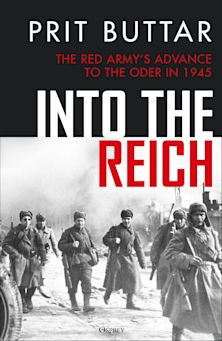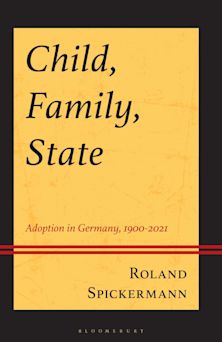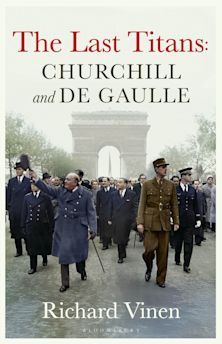- Home
- ACADEMIC
- History
- European History
- Violence and the German Soldier in the Great War
Violence and the German Soldier in the Great War
Killing, Dying, Surviving
Violence and the German Soldier in the Great War
Killing, Dying, Surviving
You must sign in to add this item to your wishlist. Please sign in or create an account
Description
Translated into English as the Winner of the Geisteswissenschaften International Translation Prize for Work in the Humanities and Social Sciences 2015.
During the Great War, mass killing took place on an unprecedented scale. Violence and the German Soldier in the Great War explores the practice of violence in the German army and demonstrates how he killing of enemy troops, the deaths of German soldiers and their survival were entwined.
As the war reached its climax in 1918, German soldiers refused to continue killing in their droves, and thus made an active contribution to the German defeat and ensuing revolution. Examining the postwar period, the chapters of this book also discuss the contested issue of a 'brutalization' of German society as a prerequisite of the Nazi mass movement. Biographical case studies on key figures such as Ernst Jünger demonstrate how the killing of enemy troops by German soldiers followed a complex set of rules.
Benjamin Ziemann makes a wealth of extensive archival work available to an Anglophone audience for the first time, enhancing our understanding of the German army and its practices of violence during the First World War as well as the implications of this brutalization in post-war Germany. This book provides new insights into a crucial topic for students of twentieth-century German history and the First World War.
Table of Contents
Acknowledgements
List of Abbreviations
1. The First World War as a Laboratory of Violence: Introduction
Part I: Practices of Violence
2. Soldiers of the First World War: Killing, Surviving, Discourses of Violence
3. German Soldiers and their Conduct of War in 1914
4. Ernst Jünger: Practitioner and Observer of Killing
II. Refusal of Violence
5. Desertion in the German Army 1914–1918
6. Disillusionment and Collective Exhaustion among German Soldiers on the Western Front: The Path to Revolution in 1918
7. The German Army in Autumn 1918: A Hidden Strike?
III. Processing Violence
8. The Weimar Republic: A Brutalized Society?
9. The Delayed Rejection of Violence: Hermann Schützinger's Conversion to Pacifism
10. 'Rear Area Militarism': Discussing the War in Anti-military Bestsellers in the Weimar Republic
Select Bibliography
Index
Product details

| Published | 21 Sep 2017 |
|---|---|
| Format | Ebook (Epub & Mobi) |
| Edition | 1st |
| Extent | 320 |
| ISBN | 9781474239592 |
| Imprint | Bloomsbury Academic |
| Illustrations | 7 bw illus |
| Publisher | Bloomsbury Publishing |
About the contributors
Reviews
-
Violence and the German Soldier is an important, salutary, and perceptive study that complicates our understanding of the German veteran's responses to the carnage of war ... the book is essential reading for all serious students of the effects of violence on the veterans of the First World War.
Michigan War Studies Review
-
Reflecting a depth of archival and historiographical knowledge acquired through over two decades of study on the topic, Ziemann's book is a welcome addition to this increasingly rich literature, chiefly for the methodological and historiographical agenda it sets.
H-War
-
It is important. It is provocative. It is densely argued. It is well organised, with each of its ten chapters featuring an introduction as well as a conclusion.
War in History
-
An impressive example of how to write modern military history. [Ziemann's] argumentation is clear and concise, and at the same time he provides a vivid description of the manifold experiences of violence during the First World War in numerous biographical case studies.
German Historical Institute London Bulletin
-
A stimulating discussion ... The indirect connections [of the Great War] with a far more violent war twenty years later remain a question on which this thoughtful book invites reflection.
The American Historical Review
-
Ziemann's outstanding book is highly original in its nuanced and differentiated analysis of the behaviour of German troops during the First World War - why they were prepared to kill, but also how war weariness led to mass desertion and rejection of violence. Simple generalisations will not surive a reading of this brilliant work.
Sir Ian Kershaw, Emeritus Professor of Modern History, University of Sheffield, UK

ONLINE RESOURCES
Bloomsbury Collections
This book is available on Bloomsbury Collections where your library has access.



































